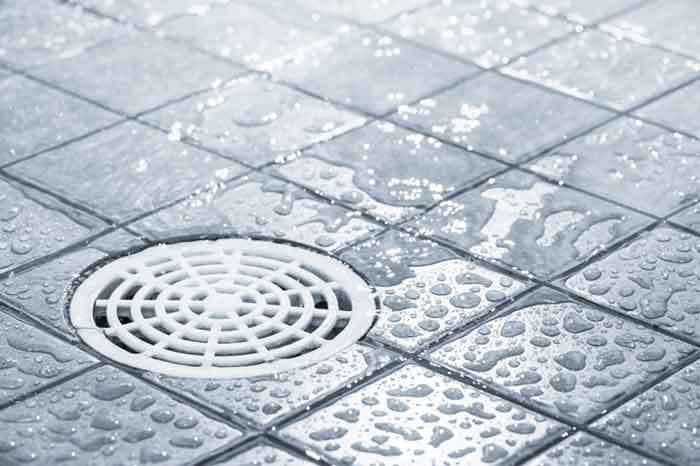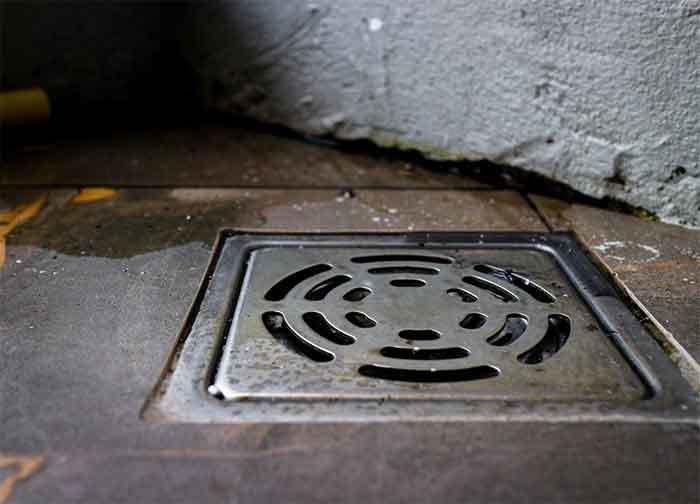Disclaimer: This post may contain affiliate links, meaning we get a small commission if you make a purchase through our links, at no cost to you. For more information, please visit our Disclaimer Page.
Last year, I had the unpleasant experience of having my basement drain backing up. I went out of town for a couple of weeks, and when I came back, I was faced with a disaster! My whole basement was flooded, plus it smelled foul!
It turned out that while I was away, there was a huge snowstorm, followed by an increase in temperature; therefore, the snow immediately started melting. After long and miserable work, I fixed it all up.
It is always better to at least consult a professional if you want to tamper with the plumbing system in your house. When it comes to sewer lines, it’s best to leave the problem to the plumber.
This doesn't mean you don't need to inform yourself about the symptoms and causes of a clogged sewer line. You may deem it superfluous, but your precisely described situation can be extremely helpful, and save some time for the plumber.
Taking into account all of this, read on to find out why your basement sewer line becomes clogged, how can it be fixed and how can you prevent future problems.

What Causes Basement Floor Drain Backing Up?
Although it may seem like it, not all problems related to the backed-up sewer line have to do with actual clogs and defected pipes. Water under pressure can cause the sewer line to back up because it escapes through the lowest point – it is the easiest route!
Furthermore, before I say anything else, it must be emphasized that even for determining the cause of the problem you will probably need a plumber. If you have some knowledge about plumbing, but you’re not the expert, you can make matters worse!
Now, let’s see the most common causes:
- Home produced waste
- Waste from the sewer system
- Washing machine back up
- Washtub backups
Home Produced Waste v.s Sewer System Waste
If you are experiencing basement floor drain backing up, that means that the house drain under the basement floor drain is full of water. This happens because of the waste produced in your home, or waste from the public sewer system.
First, see whether it is the waste from your home making the problem, or if it is waste from the sewer system coming back through the basement drain. If it is coming from your house, it is normally because of some blockage in the main drain line.
It can also happen due to roots growing into the line, or something was flushed down the toilet that isn’t supposed to be flushed.

This is a smaller problem than having contaminated water from other houses and neighbors polluting your basement. This normally happens when the sewer system is overwhelmed, because of high rainfall, or a snowstorm.
This water thus raises the level of water in the sewer system, and if your basement sewer drain is lower than that level, it will result in backflow.
Washing Machine and Washtub Basin Backing Up
If your washing machine caused the problem and it resulted in a lot of water, no need to panic. This is one of the easier issues to fix. You'll need to turn the machine off and look for the strainer on the drain hose. Most usually it is the strainer that became blocked somehow.
The same thing can happen on a washtub where a strainer, or, if you don't have one, a p-trap becomes clogged or filled with debris. You can clean it by hand, with baking soda-vinegar solution, or a plumbing snake.
The important thing to note is that if either of these is located in the basement, then it is more serious of an issue. It means that the washing machine or washtub (or any other water fixtures) are perfectly fine, whereas the blockage is further down in the drain system. This requires help from a professional.
There are many more things that can cause the basement sewer line to back up. But one thing remains the same – always consult a professional. An experienced plumber will have adequate tools and knowledge to fix the issue in no time.
How is it Fixed Then?
There are various (and complicated) ways that the plumber can fix basement sewer line backing up. But, for the most part, there are a couple of established elements of the process.
Some will opt for an HD sewer camera, which is used to search and precisely locate the blockage or a defect that causes the trouble. Then proceed with an electric plumbing snake (sometimes with blades at the end if there are roots growing into the line).
Another tool that is normally used is a high-pressure water jet, which is extremely useful for clearing out any clogs and stoppages. This is normally used when dealing with the waste from your home (grease stoppages, etc.)
Can it Be Prevented?
As with anything else in life, yes, it can be prevented.
It is advisable to grow accustomed to practicing routine maintenance and cleaning, done by a professional. Moreover, you can have water-tight house sewer traps installed or sewer valves.
Water-tight house sewer traps are used to trap any wastewater and unpleasant fumes from going back into your basement. These traps have fitting seals which increase the chances of your basement staying dry.
Sewer valves are a specially designed device that allows wastewater to flow only out of your house. There are small floaters on both sides of the valve. Provided wastewater wanted to return to your house, the floater on that side causes the flap (valve cap) to lift and close. When that water is gone, owing to gravity, the flap will open up again.
Conclusion: Basement Drain Backing Up
Even though I talked about a very serious issue that is impossible to be solved by an amateur, this text should be used to inform and educate oneself.
Fixing backed up basement sewer line is very complicated and requires the tools that no one has just lying around their house. But your being able to describe the problem to the plumber can sometimes prove to be of utmost importance.

